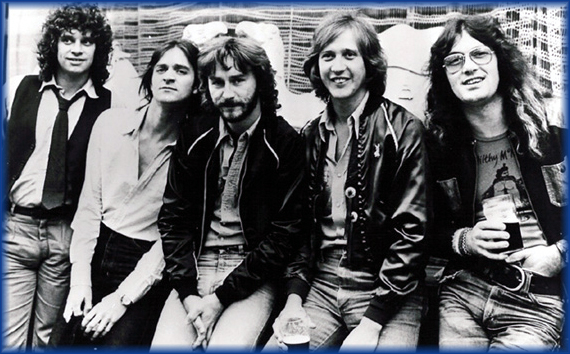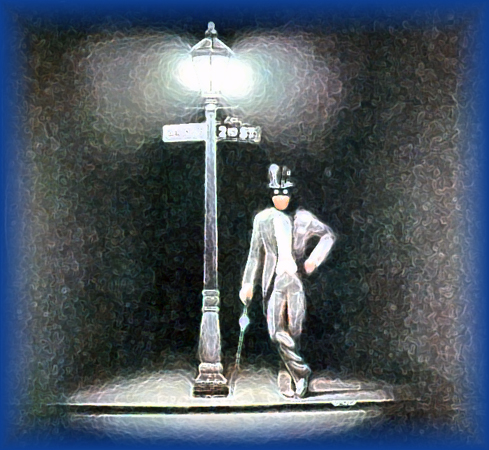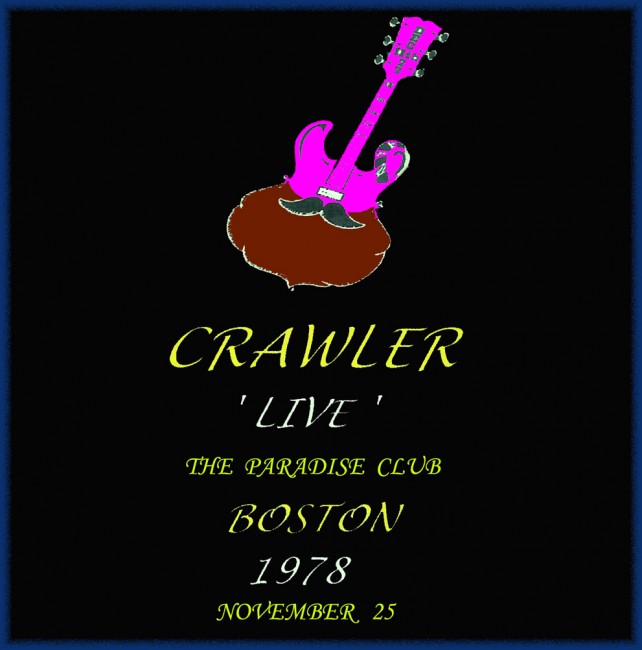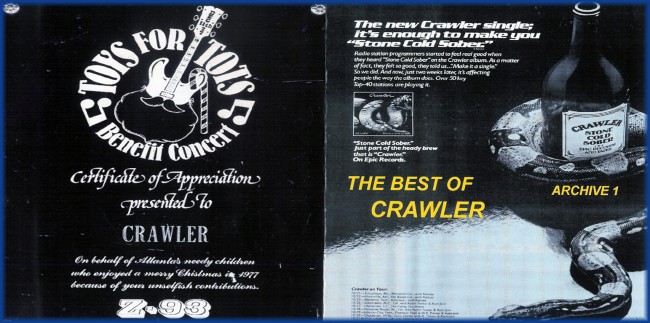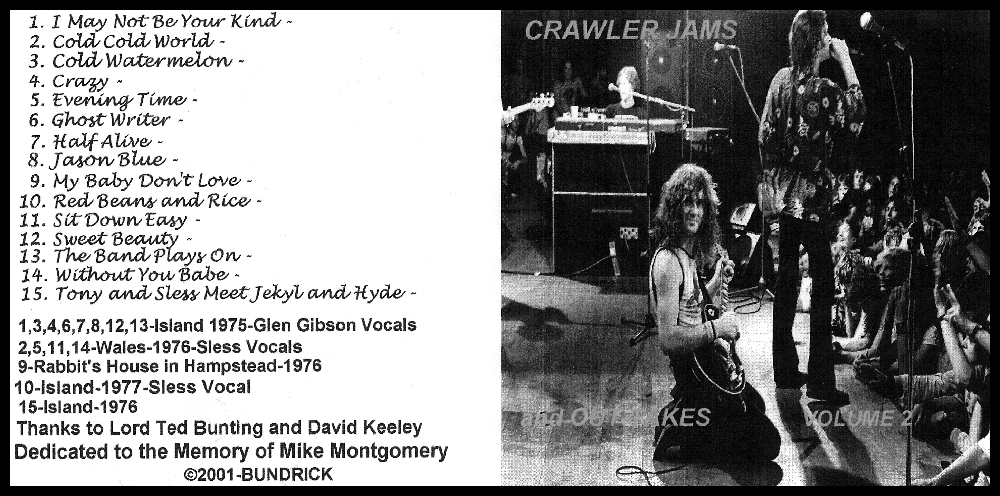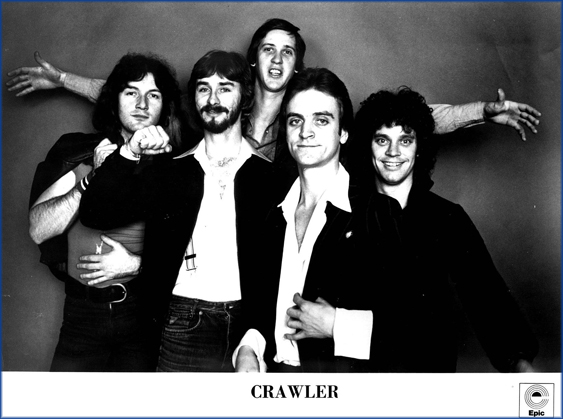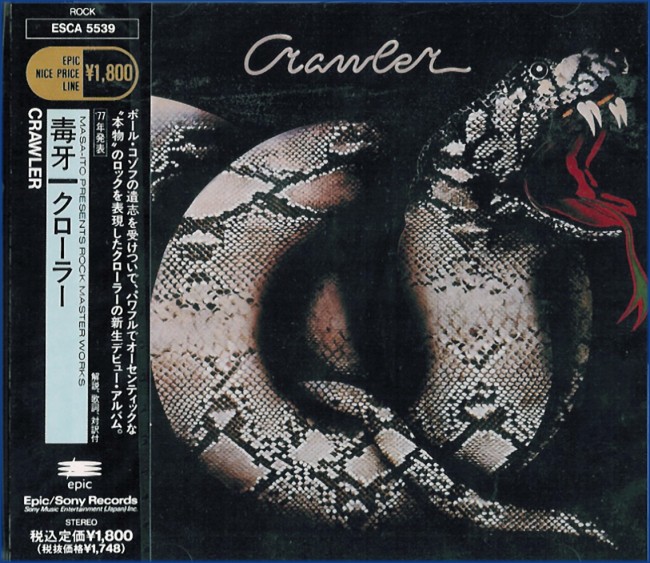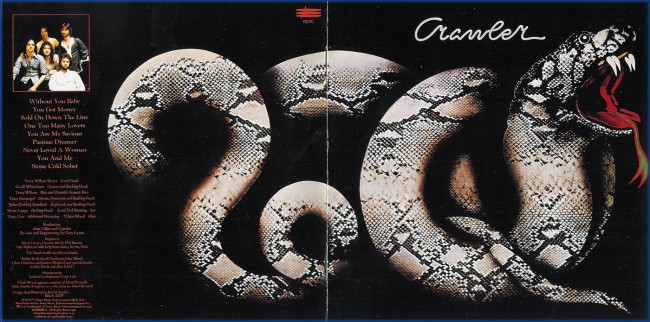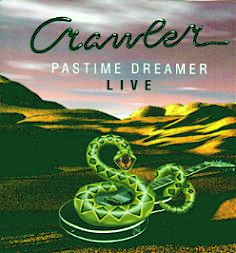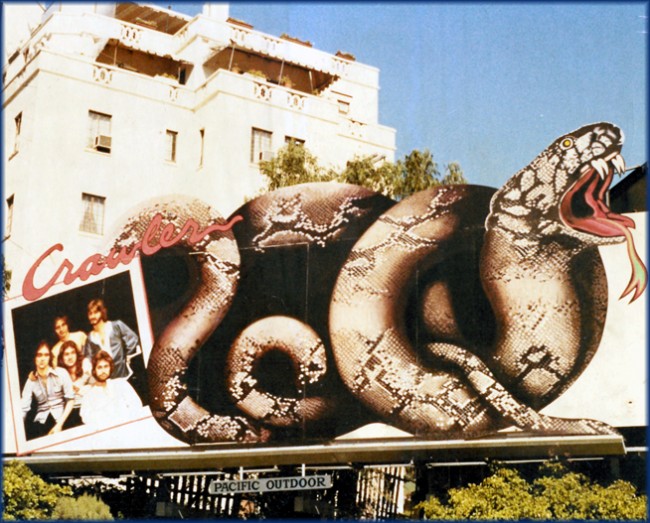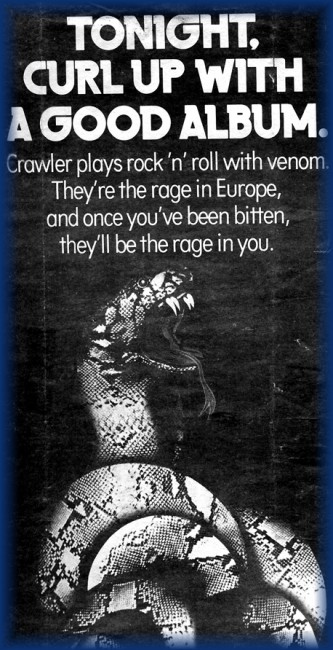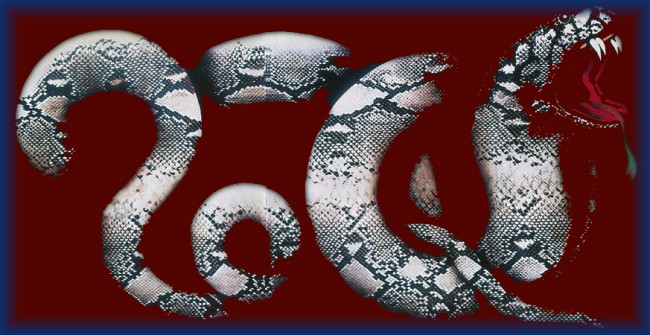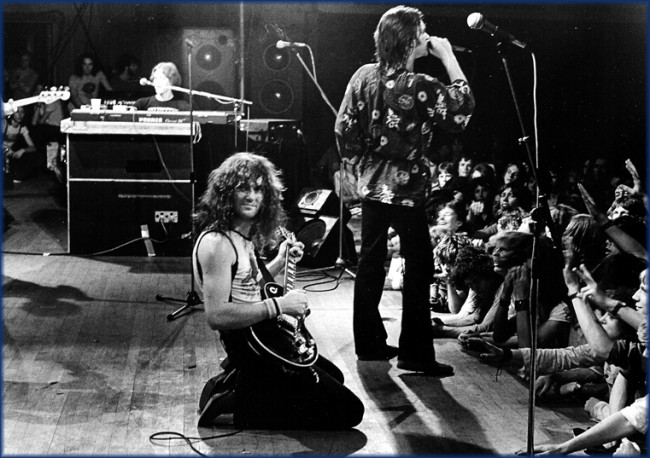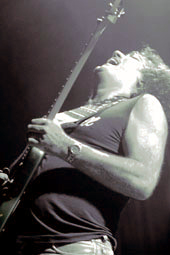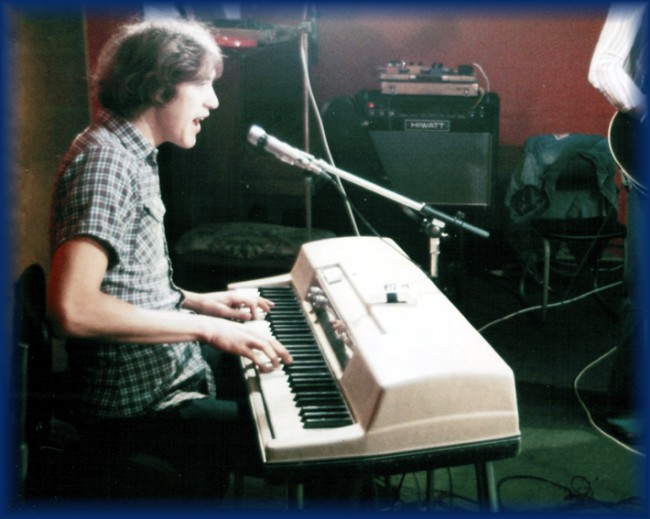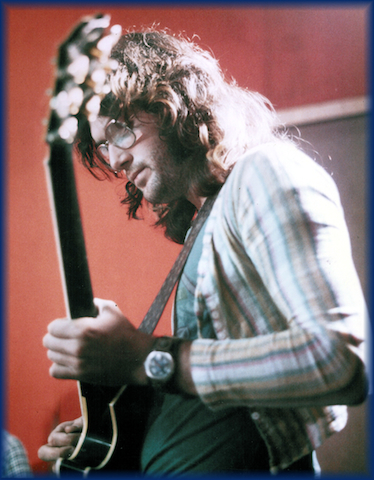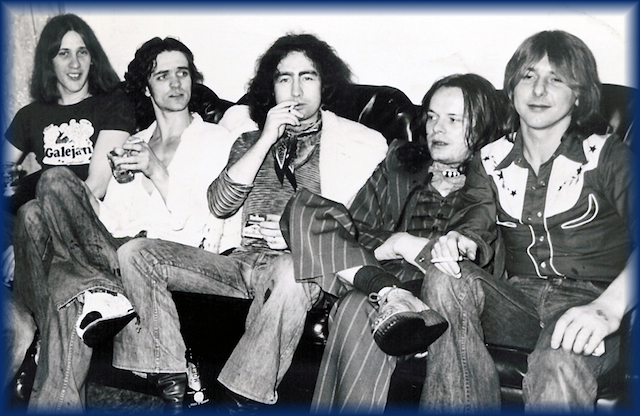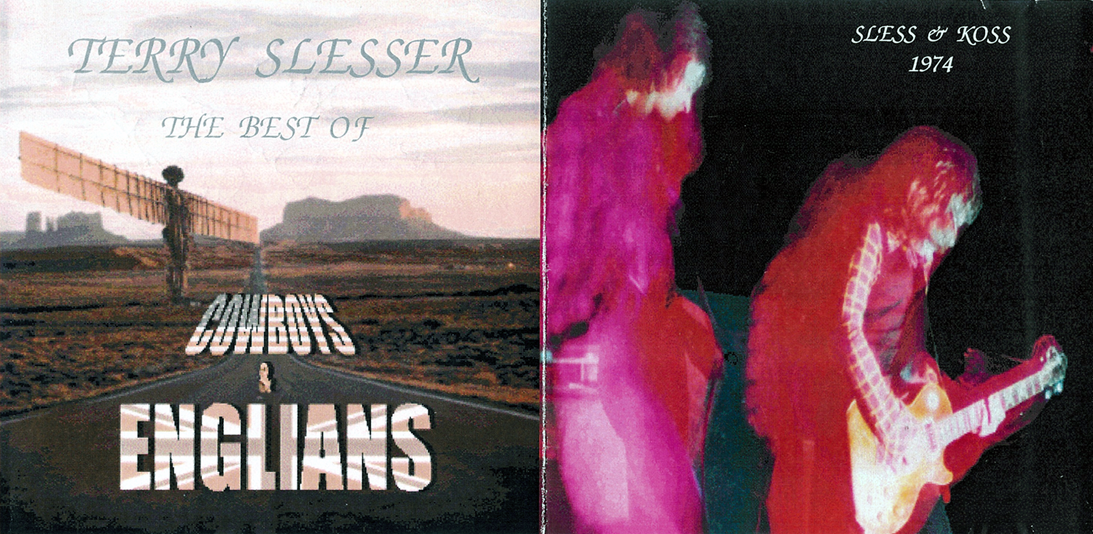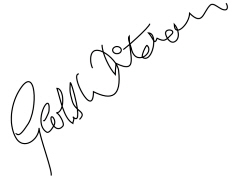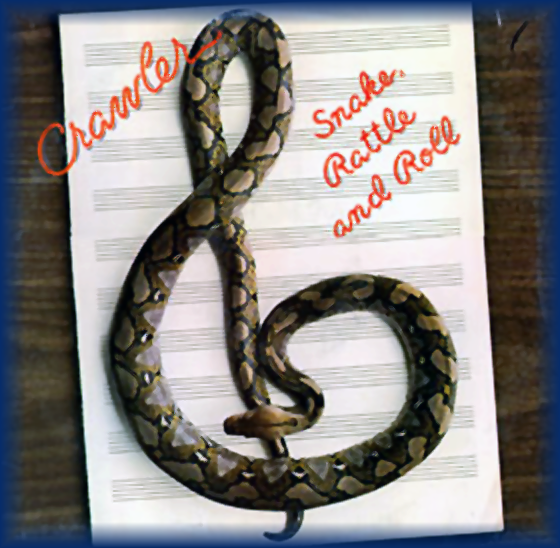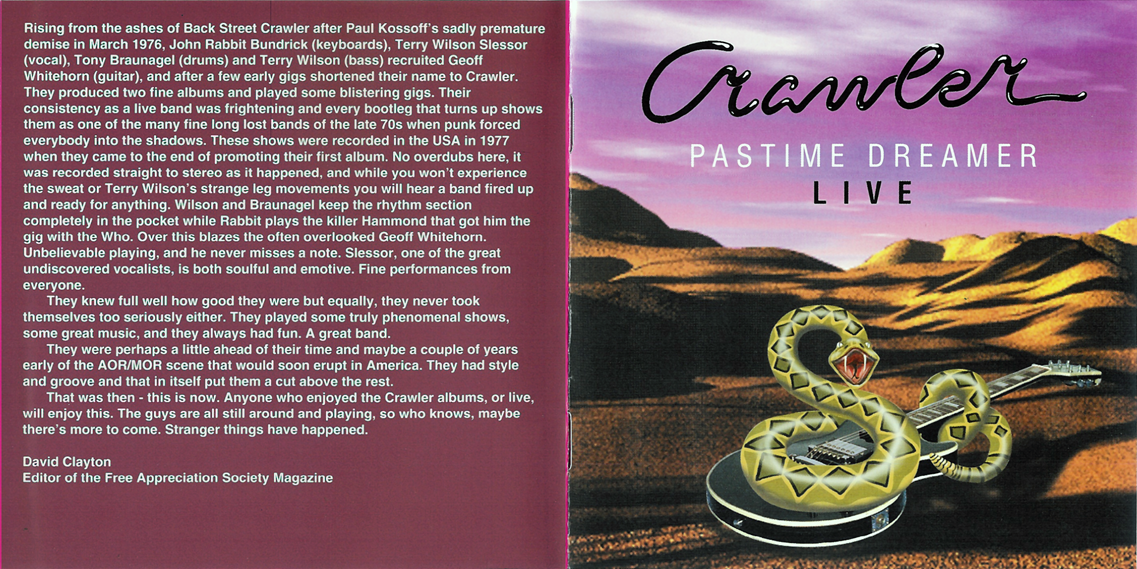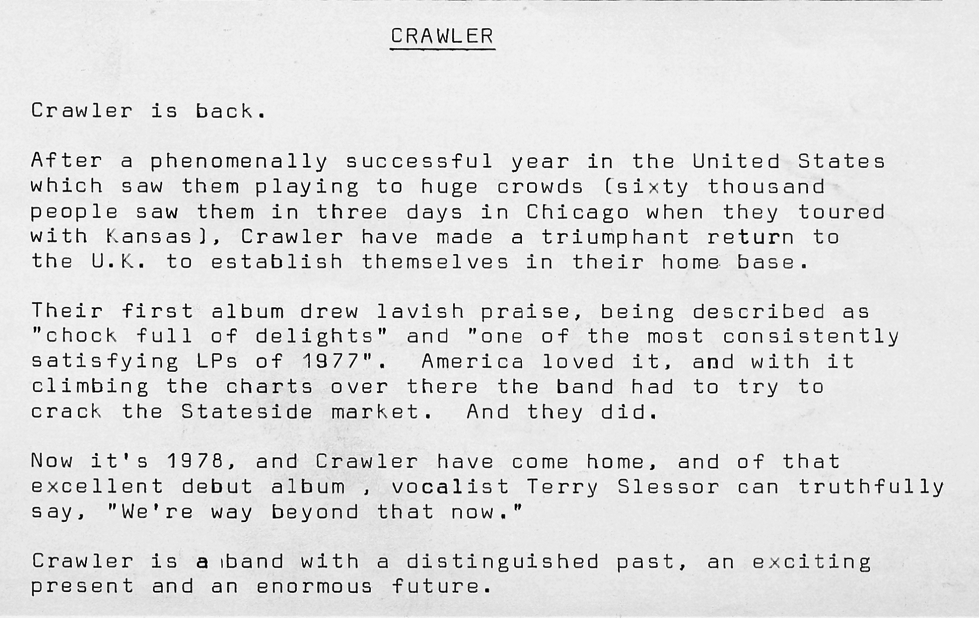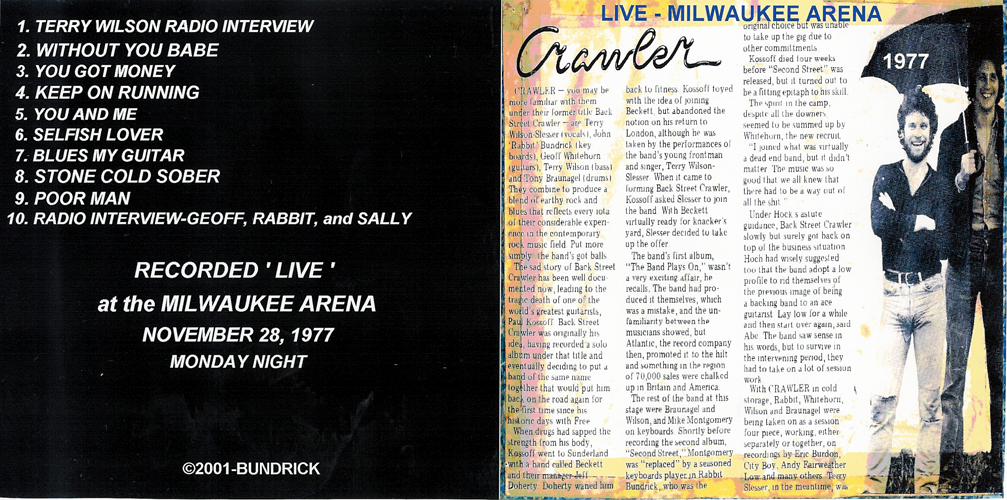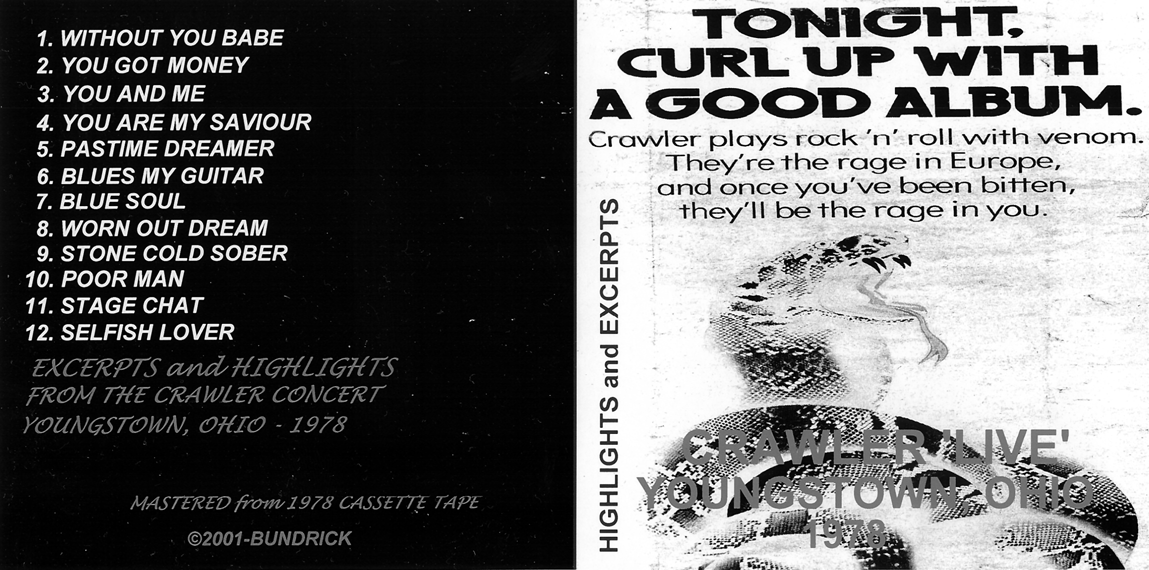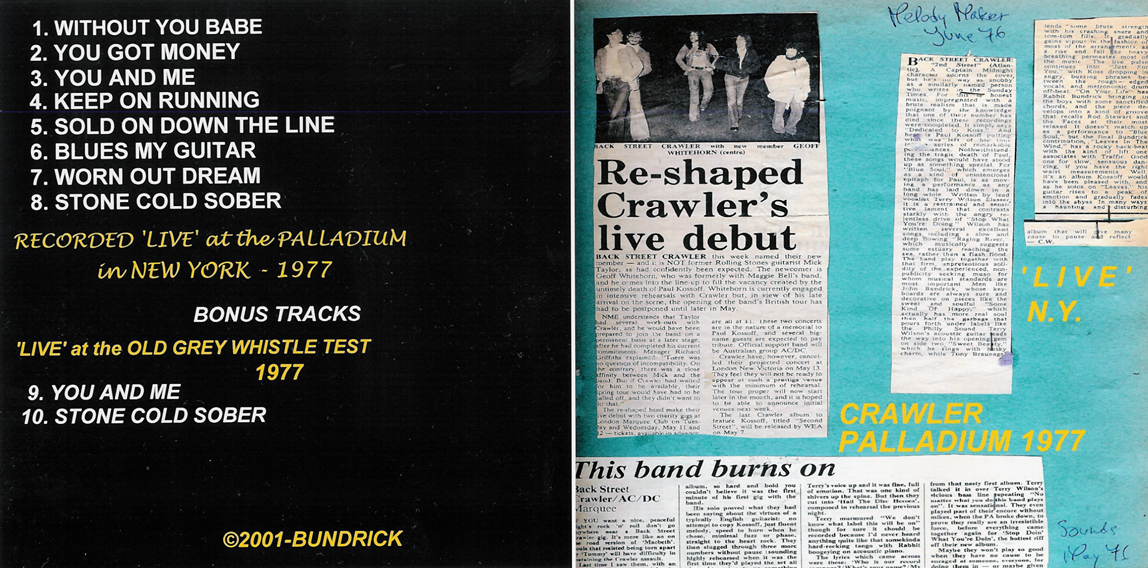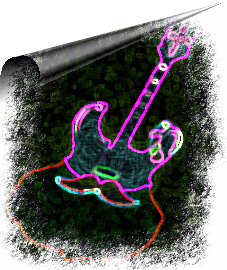BACK STREE T CRAWLER
THE LAST HOORAH.
Paul Kossoff And Rabbit fly to Texas for Rehearsals and the final act is played out.
The Point Of No Return:
When it’s easier to continue the path you are on regardless of the consequences than it is to turn around and go back to sort things out and put things right.
In July 1998 I sat in an Indian restaurant with Tony Braunagle just across from the venue he was playing that evening with Taj Mahal and for the first time we discussed his time with Back Street Crawler. Tony had always resisted this previously, and by his own admission he was kinda angry abo ut what had happened but as we talked about Paul Kossoff, the drugs, the drink, the heart attacks and the ‘death’ experiences we both came to the conclusion above. That Paul had, between September and December 1975 passed’ the point of no return’. He had reached a point where he was probably beyond the help of his friends and his family and in the space both Keith Richards and Eric Clapton have described, where the only person who can make you stop is yourself. YOU have to decide that enough is enough. Paul Kossoff it appears never reached that decision – nature made the choice for him before his ‘eureka’ moment. It doesn’t make the end of this story any easier for anyone of course, not the reader or those who participated in the
events at the time unknowing of the twist that fate would throw on March 19th. I’ve been here before of course. I’ve probably written more about Paul that anyone and still this issue is a tough one to sit down and work on, and I’ve been putting it off for weeks with deadlines approaching. There are two reasons for that. Firstly it’s very difficult not to be consumed by Paul’s final descent and pa int everything black. That there was no hope, that the end was inevitable, and maybe it was – but Paul also had lucid moments and it wasn’t all bleak or desolate. I’ve tried therefore to give some ‘balance’ to the article. The second point is a little more difficult though, and that’s the fact that once Back Street Crawler vanished over the Atlantic their activities are somewhat more difficult to chart. Certainly Paul and Sless in particular did a ton of press and radio in late 1975, but almost nothing survives and where sometimes syndicated shows like ‘Nightbird & Co.’ do turn up on vinyl (I have a Bad Co ’76 interview from that very show) nothing Paul and Sless did has every surfaced. Bad news when you are writing an article. When they were over in early 1976 there is equally almost nothing about the activities of the band. Basically in the USA Paul Kossoff’s name, and that of Free meant very little .. Yes some people, mostly musicians, knew who Paul was but it really was a minority audience. They would probably have got more press tying themselves to Bad Company somehow, but as many will testify – most Americans thought Bad Company was an American band! And many of them probably still do! Bearing all that in mind then I’ve done the best here I can and would like to thank a few people. I’d like to especially thank Simon Kossoff for going through David Kossoff’s diaries for me, and also to Rabbit for letting me use his. These give us dates and guides as to what the band were doing, without them this article would be little but old memories and guesswork! Thanks as well to Sandhe, who helped clear up a few blurry moments where no one else could remember anything! I’d also like to thank Steven Rosen for kindly letting me use his ‘Guitar Player’ interview and for also allowing me to use another piece he wrote for Gibson that gives a nice opening to the interview text, printed here in it’s entirety for the first time. I’d also like to thank Russell Airey and ‘Fenten Groover’ for their efforts in transcribing the 33-year-old cassettes before they finally decay beyond repair. Steven Rosen’s ‘Guitar Player’ interview is one of the most important pieces in this final part of the story and shouldn’t be underestimated. Had he not had the foresight of pitching and selling the idea to ‘Guitar Player Magazine’ and getting himself down to the Hyatt with a tape recorder some vital information would have been lost forever. No one else had ever asked Paul about what strings he used, about guitars, pick ups, modifications and so on. Lets face it most of the press was about drugs , hospitals and whether or not Paul would ever play again or at best about the ‘new’ album or current band. Without this interview we’d have endless discussions about light string gauges and pick up re-winding whereas the m eeting tells us Paul basically didn’t mess with anything. He bought a guitar he liked, put ‘heavy’ strings on it, plugged it in and turned the amp on full, and away he went! Seemingly a funny thing in days when guitarist’s change a guitar every song (I hate that). If you are a ‘certain’ age you can remember guitar players who only had one guitar – and if they broke a string they re-strung it there and then while whatever ‘front-man’ made merry or looked a dimwit depending on his communication skills! Ah those where the days. So anyway, many thanks to those who have helped with this article, and with that we’ll re-join Rabbit at the airport in Texas…
“No shit man. Not only did I go there to join Crawler, it was also my Mom and Dad’s 44th wedding anniversary so I decided to fly in secret. I told none of my family I was coming in.
“When I landed and got though customs I was drunk as a skunk. Annihilated! It never dawned on me that once I’d landed I’d have to look after myself. Someone else always took care of that as part of being on the road’. So I stood in the lobby and said to myself, “Fuck! What do I do now?”
His answer was to go and try to hire a car! Fortunately the hire officials refused this request and he rang his brother who arrived too late to stop an altercation with a police officer. He’d decided to lay down on his bags and sleep while he waited for his brother to arrive but a police officer stopped, got out of his car and gave the sleeping ‘long hair’ a wake up call.
“He got out and kicked me as I lay there and it woke me up and sent me into a panic. I fumbled about trying to get to my feet and my shaving cream fell out of my carry-on bag. The cop accused me right there=2 0with attacking him with it?!…. “What….. A can of shaving cream?” I yelled at him. Rabbit’s brother Bill arrived too late to stop him being hauled off to jail.
“I was thrown into the same cell with all sorts of riffraff characters of the night, but I was so drunk even they stayed clear!”
Paul Kossoff’s arrival is a little sketchier but certainly less dramatic. He had stayed with his parents over the Christmas period, arriving at their home in Hatfield, Herts on December 24th. David Kossoff’s comprehensive diaries reveal much of this visit and for Paul’s parents there was joy in having the whole20family together, including Paul’s brother Simon and his future wife Annie. On Paul’s arrival David writes; ‘He ate four eggs on toast with a lot of tea, went up to his room, read and dosed off.’ And also; ‘At dinner he was warm and funny and relaxed. As good as gold and he and Simon got on well.’ During his stay Paul had spoken about his ‘lack of a friend’ and also how he had the feeling that ‘music was no longer enough for him, that the ‘high’ was gone and that he felt there had to be something more. The first evening David notes that Paul didn’t sleep well but adds that he ‘Crept down (stairs) to make himself warm milk. Not long ago he would have woken us (his parents) for pills’.
On the 27th Paul went to visit his daughter taking gifts and David dropped him at the station. He wrote; ‘I was aware of a great sadnes s and loneliness in Paul and when I left him at the station “You’ve no need to wait Dad” he looked a defective little figure, in poor clothes, with his shabby holdall and a plastic bag of little gifts for his daughter, all provided by his parents. I went home very low indeed and wept.’
On the 28th Paul was back at home in Tilehurst, Reading and on the 29th Johnny Glover called Paul to tell him he’d be flying to Texas to join the band on the 31st. That day Paul called David about getting a tooth fixed and was ‘firm voiced and clear’. It appears he was drug free over the entire period. On the 31st David drove to Heathrow to see Paul off. The car to pick Paul up had apparently let him down and he was very late to the airport, arriving there only five minutes before the flight was due to close. David gave Paul £50, a letter from20his mother, the ‘in brief’ 1975 diary* and a note from himself and Paul was gone, apparently to sit on a jumbo jet with 200 empty seats! The final lines in David’s diary for 1976 poignantly read; ‘Tomorrow a new start for us all please God. And please, God, a new life, a better life for Paul as well.’ Paul Kossoff arrived in Texas with no spectacle.
(* Previously Johnny Glover had told me Paul hadn’t been given the diary of his year as kept by his father for 1975 (as presented in FAS #119) but David’s own diary reveals it was given to Paul at the airport)
Rabbit jammed with his drummer brother Sam on January 3rd and also met up with Terry Wilson. Later in the evening they went out to a Blues club where Rabbit, Terry Wilson and Tony Braunagle jammed with Rocky Hill (Brother of ZZ Top’s Dusty). For the most part here Rabbit stayed at his parents house while Terry Slesser and Koss were guests of Terry and Tony’s parents. When Rabbit arrived Paul rang Mike Montgomery and told him his services were no longer required. “It wouldn’t have anything to do with someone with big ears and bucked teeth would it?” shouted Montgomery down the transatlantic telephone line. Certainly Mike must have been disappointed, and even angry, but when I spoke to him in 1980 he held absolutely no resentment towards Paul at all. Far from it whe n asked about Paul’s personality he said; “He was a complicated character actually. A lot of the time he was really shy and withdrawn, other times, especially if he was stoned he’d be really cocky. Sometimes he’d be really mischievous, like a cute kid or something. He had a really mischievous sense of humour. That’s when it was best, when he was like that.”
“With Rabbit along the band changed,” says Tony Braunagle. “He and Mike had different styles and that changed how the rhythm section worked. The band was better when Rabbit was around. It got a little more musical.”
On the January 7th Rabbit moved into the ‘Roadrunner Inn’ and it was payday, so he got $100 in wages for being in the band. They began rehearsals at Rampart Studios in Houston, a place frequented by Terry Wilson and Tony Braunagle and actually run by musicians. Rabbit describes it as ‘a home from home’ and recalls lots of talking, drinking and playing music, but strangely he doesn’t recall Paul Kossoff being there. What kind of state was the band in? “I was drunk so I don’t know about the rest of the guys” is his answer. Rabbit does have a couple of pictures he thinks are from this period and while Kossoff’s gear is in evidence he isn’t in the pictures. Tony Braunagle however remembers Koss being very good around this period, and playing very well. This is mostly because both Wilson and Braunagle had foreseen the inevitable search for drugs and told all the friends and musicians they knew NOT to give Koss any drugs under any circumstances. So Paul may have been drinking, but getting a good supply of Quaaludes or valium was a tough order. Tony Braunagle even recalls Koss going out with him and Terry Wilson to a blues jam. “Koss was at the Houston rehears als and in pretty good shape. In fact he came out one night while Terry and I were playing, he sat in and sounded great on a blues gig. I was proud of him.” In ‘Heavy Load’ he also recalled, “Paul stayed straight for about a week, and I took him out to some blues jams and he played his ass off – man he was burning. I thought, Now THIS is happening! This is the guy I wanna see play!”
The rehearsals kept the band busy during the week with weekends off. Rabbit recalls these actually got off to a slow start. “2nd day of Crawler rehearsals. A lot of kicking of the English football around the rehearsal room. I hate English football, the rest love it, so it was boring to me. I wanted to play music they wanted to play football. Mind you, I don’t recall seeing Kossoff kicking a ball around.” But as the rehearsals went on the band began to tighten up. By January 14th Rabbit recal ls, “The rehearsals were going fairly well. There were plenty of new tunes we worked out and all were in good spirits, having fun, laughing, just a great time to be together. We were a band of jolly young men in our prime loving and living life to the full. We had a deal with Atlantic, were a band of good musicians. What more could we want?” Rather more tellingly he adds ‘Friday January 16th – Day off. I went to my Mom and Dad’s to sober up!’
Another week of rehearsals saw the band tighten and polish the new songs Rabbit and Terry Wilson had written. They were ready to play, and ready to record. Johnny Glover flew in to check on their progress on January 21st and on January 22nd they moved everything over to Liberty Hall where they rehearsed the final two days on the stage there. Of the last day Rabbit says, “Everything was ready to take out on the road. A great time honing our craft8 0 Well done guys! No one injured, no hospitals, no jails, no deaths. We were all as one, one as all, ready to fly.”
And fly they did, on the 24th, to Detroit to play with….. Kiss!
If ever anything screams mismatch it has to be Back Street Crawler, serious blues based and street tough on the same bill as Kiss, lightweight bubblegum rock really, not even with the weight of good material (like Alice Cooper say). I never understood Kiss when you could have Alice, and I’m sure Paul didn’t understand Kiss either. Rabbit had some ‘choice’ words for them, but without the expletives it basically thins down to; ‘Wow!! Kiss… What a weird band. Funny make-up 3 what about the music? Crawler was about the music, not the fashion.” Sandhe however recalls that this was actually a great BSC show.
“The Kiss show was awesome, apart from the fireworks (American audiences love to let them off and throw them). I could not go backstage and 10 women in baths tubs on the phone and in leather showed up at gig – he was almost kidnapped! I was shoved down of a corridor and onto a lift with the equipment – two girls had Paul and shoved me in, the roadies saved me. After the gig we went to the hotel lobby and had a few (drinks). One of Kiss even showed up at the Marquee in London for Paul’s memorial concert and told me he loved touring with him.”
News filtered back to David and Jennie in England and on January 28th David wrote, ‘The Detroit date went well and the band are to record in L.A.’ But it was in LA that things were about to unravel. In Texas Paul had been pretty well protected by the band and the road crew. Yes, they were all drinking heavily and enjoying the ‘Rock ‘n’ Roll’ lifestyle, and I’m sure Paul had been drinking too, but the constant supply of drugs had been abated somewhat, if not completely, and because of that Paul had been functioning and involved. Once he came to L.A. it was more difficult to exercise that control. Paul had been to L.A. and knew people there, very often the kind of people he needed to be clear of and really protected from for his own well being. Once in L.A. Johnny Glover’s worse nightmare became a reality, and at the Sunset Marquis Hotel the shit finally hit the fan. The story is probably best told in Johnny’s own words.
“We were there to do a tour and we were there to do an album at the same time,” he recalled. “When we arrived we got off the plane and there’s a chick waiting for him, as there was al most everywhere we went. I’d never seen her before. She was apparently a friend for years, she’d always been around and she was into dope. And I did take her aside and go through it very carefully with her, ‘this is a problem he’s got, I’m sure you are aware of it, and the only way you can help him is not to let him get near any dope. So they got their own little room and the control goes and certainly she got him loads of dope and he got right out of it and completely blew the first gig. He was on a bender or something for the first two days and if you can picture the scene whereby this is our second album for Atlantic we’re about to record. So they’re into us for $150,000 on the first album, they are paying us $150,000 on the second album and they’ve probably spent another $100,000 promoting us in America and England. It’s a lot of money. When he died the band were in for about half a million dollars. It’s a serious business empire Atlantic Records. They’re a heavy, heavy record company. Extremely heavy to deal with, and there I am stuck in a foreign country and Paul blows the first gig and I was under so much pressure20it was unbelievable. I had to make up a story as to why he missed it. I couldn’t tell them he was on a bender because they’d have dropped us the following day. So I made up some excuse and he went on a series of benders and at some point I just said to him ‘for Christ’s sake! What’s this madness?’ I went in and really had a go at him and he picked up a whiskey bottle to hit me because he was well out of it and he was violent when he was well out of it. Very very violent. And he went to hit me with this whiskey bottle, which is a hairy experience. If you’ve never seen Paul when he’s on a bender, he looks horrendous at that point, and I must admit I was fearing for my life at that point because he was out to kill me. I mean it was the sort of thing he’d regret afterwards but that’s not the point when he was in that state. He came hurtling across this room at me and I just sort of whacked him aside. I mean I‘m a lot bigger than him and over he went and I think he just hit his fingers on the sideboard or something but he broke the little finger. I think he broke one and cracked one.
“Actually 9 8The Band Plays On’ did quite well. 30,000 or something, which isn’t bad. It’s quite respectable but I mean that’s not enough to make (pay) back the advance we were on. We were on $150,000 an album, which in those days was an enormous amount of money. It was just under what the Stones got. About the biggest record deal around at the time. An extraordinary amount of money. But that can go very quickly if you keep cancelling dates. You’ve got PA Companies that w ant cancellation fees, and lighting companies. It goes on and on and on, and of course even though you don’t play you still have the band and crew on wages.
“Paul’s problem wasn’t heroin it was pills. It was mandies and valium. Now the quantity he took was so large…. I mean to give you an idea, he could take an entire bottle in 24 hours, which is an extraordinary amount. Most people would probably go to sleep on 5ml of valium. Paul could take a dozen of those in one handful and still be on the go ten hours later. He may be slurred but he’d still go on.
“When he was straight he was the loveliest person you could wish to meet. I don’t think I’ve managed a nicer person actually. When he was straight he was the nicest person you could wish to meet. Very sincere, great. I mean a great character and a magnetic personality and all of a sudden he’d just take the pills!
“We brought the whole album thing forward and started to record without him. I tried to get him to go down to the studio every day so he could produce it if you like, so at least he was part of it while the other four guys were playing but I think that worked once and after that he couldn’t cope with not playing. It was just too painful, so the other guys made the album without him.”
For the band and for Paul this really was th e worst-case scenario. Not only had he blown out more gigs, but also he was now incapacitated and shows had to be cancelled. Rabbit recalls Johnny having to pull shows out but it’s difficult to know how many as his diary only lists the shows they DID play and they appears to have been no press ‘announcing’ any kind of tour to the punters. Rabbit does recall conversations with Johnny about what to do with Koss and at one point Rabbit went to Paul’s room and banged on the door until he answered. “He came to the door and he didn’t look great. I asked him if he’d had anything to eat and he said yes but I took a peek into the room and all I could see was an empty bottle of vodka and two empty bottles of Mateus rosé wine. I invited him down to have dinner with me, and he came down but while I ate he just shovelled as much Mateus wine down his neck as he could, at least two bottles. And when it came time for us to leave he’d not eaten anything and he swivelled around in the chair and fell on the floor. And that’s how it was.”
Johnny got them into the studio as quickly as possible and work on the new material began, while in England the Melody Maker announced the first rumblings of a proposed UK tour in April. The machine was running, and they had to keep moving. With Paul unable to play he was convinced by the management and the band that he should ‘produce’ but being in the studio unable to contribute as a player was a nightmare for Paul, and it was boring. His interest soon waned and he stopped going. The last thing anyone needed was a bored Paul Kossoff wandering around L.A. It wasn’t all doom and gloom though. A journalist called Steven Rosen made contact and said he wanted to do an interview with Paul for ‘Guitar Player’ magazine. Sandhe recalls that Paul was absolutely thrilled about this, and was even nervous about it. Sadly he was a bit the worse for drinking with the microphone was put in front of him, but he was courteous and friendly – even getting his guitar to let the writer have a look.
9 8I pretended to know what I was doing’, wrote Rosen for the Gibson website ‘strumming miscellaneous chords and plucking out miserably executed pentatonic scales. I mean, I knew virtually every song he ever played and I couldn’t think of one of them. I resorted to default setting and played the opening riff to “All Right Now” I blew it, of course.’
The band first started recording at Kyndon ((Kendun) Studios, and from Rabbit’s diaries we can see that ‘Sweet Sweet Beauty’ was the first track they cut. How could Paul Kossoff not be moved? It was a great modern sounding blues cut. Even in Steven Rosen’s interview he says how good the band is. “The band is really hot to me. It’s a hot bastard.” So it wasn’t like he didn’t know how good it could be. So why was he blowing it so badly? After three days they had a break and moved to Crystal Studios. You may notice that there are some unfamiliar track titles but before anyone gets excited let me say that Koss didn’t play on any of them. Recording without guitar was a tough call. Terry Wilson played a bit of acoustic to push things along but in the end it was decided someone had to be brought in to help with the tracks. They were in L.A. – and so was Snuffy Walden. It just seemed the obvious choice and so the call was made and Snuffy came in to help. They all knew him from Texas, they knew he could give them what was required, after all Rabbit had made this call once before with Free. It wasn’t what anyone wanted, but it was making the best of what they had – already a bad situation. Then someone decided perhaps Snuffy could help out and save some of the gigs. I can only imagine Paul’s reaction to this news. On February 12th the band, including Paul, attended a party thrown for them by Atlantic Records at Jane Mansfield’s house .. Paul was spotted by a fan who got an autograph and describes him as ‘drunk but very pleasant’. The next day they flew to Kansas for the first show with Snuffy, Paul was to act as MC and introduce the band, explaining about his fingers and that he couldn’t play. In the end, from the information in Rabbit’s diaries, it looks like Snuffy may actually have only played four shows. In Kansas Johnny seems to recall they supported Roxy Music, and they followed this with a gig in Philadelphia. They then moved to New York and spent three days recording at Sound Ideas Studios before moving into Atlantic Studios and then playing one, possibly two shows in New Jersey. A fan at one New Jersey show told me, “I spotted Paul at a table and went over to have a chat with him as he was on his own. He told me he w as very ill and couldn’t play.” When the band came on with this guy in a cowboy hat I asked the manager for my money back saying I’d come to see Paul Kossoff play. ‘That’s NOT Paul Kossoff he said?’ and started towards the stage*. I left, but in retrospect I wish I’d stayed. I didn’t realise it was Snuffy helping them out. I was just pissed it wasn’t Paul playing.”
*This may be the promoter who withheld some of their gear until they retuned part of the fee
“Snuffy was a fiery personality, half Indian I think,” recalls Terry Slesser. “One glass of firewater and he was away, cowboy hat, big boots and all. He gave us a real lift, which we needed then.”
&nbs p;
If Paul was angry or jealous of Snuffy’s position he never voiced that irritation to him. “The one time we actually sat down and talked,” Walden recounts, “Koss was a real gentleman. He knew he was blowing it and he knew I wasn’t after his job. He was gracious, he was nice, he was thankful. He wasn’t resentful and he wasn’t angry.” However on January 18th Paul had rang his parents from Johnny Glover’s hotel room in New York and they’d gotten the whole story of drink, drugs and broken fingers – and the replacement guitarist on the album. In his diary David Kossoff wrote that Jennie (was) upset having taken Paul’s call. And that Sandhe was on her way’ (to New York to try and help). He added ‘We are down in the pit (of despair) On January 21st Sandhe called Paul’s parents and David wrote, ‘she is staying on and all is well’. On the 22nd however David wrote in his diary ‘Worry, worry, pain.’ On the same day Back Street Crawler moved into Electric Ladyland. For Paul this would have been a thrill, this was the studio built by Jimi Hendrix, his idol. He wouldn t have recorded there though as the bandages would still have been on for another week or so. Another bitter blow perhaps but the album was coming along and the cement of the music was coming together. This was a very different Back Street Crawler to the one that batted out ‘The Band Plays On’. Rabbit exerted his influence fully and everyone raised their game. A particular target was Terry Slesser.
“I didn’t think he was no Paul Rodgers when I heard him”, says Rabbit, “and I thought he could be much better than he was. So I pushed him. I made him concentrate on one line at a time and sing it, even one word at a time. I gave Sless a really hard time actually, and I regret that now but actually his performance on that album is excellent, he’s fucking great – so I was justified in my actions, but I really did work him hard. Sorry Sless!”
“The band was better when Rabbit was around. It got a little more musical”, Braunagle explains. But unfortunately Paul was losing touch. We didn’t have much of Paul’s pure personality present. I was filled with frustration and anger. Throughout the whole relationship I had days when I loved him and the work was done but some days we just clashed head on. Two short guys with attitudes butting heads.”
“When he broke his fingers and wasn’t showing up for the sessions and wasn’t in good physical or mental shape, that was like sliding down the banister for him. He wasn’t getting the right kind of help to get himself well or s traight. Paul was an addictive person, and he was going to go from one addiction to another.
“You can forgive talent,” says Johnny Glover. “If you’re there for those magic moments, you can give something up for that but he had become schizophrenic. After a binge he would tearfully apologise to the whole band… and they’d all believe him because he meant it, but he couldn’t help himself. He had gone past the point where he could do anything about it.” Unfortunately as the band worked in the studio Paul became more and more of a stranger to them. He didn’t want to talk about the music, he needed to play and because he wasn’t in the studio he became isolated and felt left out. It was a vicious circle but the band had to work on the album. The idea was that as soon as Paul was well he’d redo the tracks and add his parts. The splints were coming off and during that last week in New York while they recorded at Electric Ladyland Sandhe was vigilant and Kossoff became steady again. The band had two gigs booked at the ‘Higganum Music Hall’ and Paul was ready to re-exert his influence.
“He played the best gig of his life I think in Connecticut,” says Johnny Glover of the shows. “A little club in Connecticut which is now closed. We played two days there and I was going to film it and record it and to this day I regret never having done it. It was one of those things. It had a great feeling about it. I had the feeling it was going to be a great gig and I tried to get all the Atlantic people to come up to it. It was just one of those things, that you felt the day before. He (Koss) was in great shape and really wanted to be good and when he was like that there was nobody like him. We played two shows there and they were both absolutely sensational. The best two shows I think he ever played. He was great.”
On January 28th David and Jennie received a cheerful letter from Sandhe, who was now back with Paul but at the same time David noted that ‘Johnny (is) depressed and fed up. No details but he says that some of the new album is great’ A telephone call from ‘Rob’ (unknown) the next day brought more relief. ‘Paul is playing again and there are dates to be played and that ‘things are better’. In the UK the February 28th edition of the NME announced ‘Kossoff’s 20 dates’, a full UK tour stretching from April 25th to May 25th. In the UK we assumed things were getting better, that Paul had ‘recovered’ after the ordeals of late 1975; that ‘lessons had been learned’. I was playing in band at the time, and we planned to go and see Paul at Loughborough University. Fantastic! How little we really knew. After Connecticut Back Street Crawler moved back to California for more shows, and with Paul now back in action it was surely time for him to add his parts to the record but it appears he just avoided going to the studio ..
“We went back across to LA to do the dates we should have done at the beginning of the tour ,” recalls Johnny, “and we finished up with four days at ‘The Starwood’ in Hollywood.. There was another chick around at this time. There was the original one and another one. He was collecting them as we went along. So we get back to the west coast and as I say there was another chick around at this point who I’m quite sure gave him the stuff at the end (before Koss caught the plane) … Anyway we did four days at ’The Starwood’. I think it worked that we did the first day on our own. The second day I think Simon came down and we went out afterwards to see Bobby Bland and BB King play at the ‘Coconut Grove’. Simon came with us to that (actually on March 5th the day after the final show). On the third night Simon, Boz and Mick Ralphs came do wn and played with us for half a dozen numbers at the end but Rodgers never showed during this time, but on the last night Rodgers came down, which is who Paul really wanted to see and he played with them but the last night Paul really blew it again. He wasn’t in great shape, which was tragic. On the third night he’d been great, when Mick, Boz and Simon were there. On the forth night, whether it was because Paul hadn’t come and he was frustrated. I mean he was saying ‘Why the fuck doesn’t Rodgers come down. I’d really like to see him.’ That sort of thing, and he was frustrated that he (PR) wasn’t there when he really wanted him to be when he was playing good. Because he was still trying to prove to them, to Simon and Paul, that he could crack it, and when Rodgers came down he wasn’t in the best shape. He was okay. He wasn’t out of it but he wasn’t 100% condition which was tragic, and he was very upset about it.”
Bad Company were in town for shows at ‘The Forum’ on the 3rd and 4th March with no further dates until the 8th (Tucson) Simon Kirke recalls Paul visiting him in his hotel. “He was the old Koss,” he says. “He was, “Got your own Mercedes now have you?” and I said, “No, It’s rented.” And he said, “Nice room though, You’ve got a nice room.” Simon was pleased to see Paul and according to Machi, then married to Paul Rodgers, Koss turned up at one of the Forum shows and wanted to play, but being a little worse of drink Paul Rodgers wouldn’t let him. “He was crying, ‘I want to play with Paul” said Machi, but he wasn’t allowed too. Bad Company were at this point a tight well oiled unit, and a real rising star in America. Having a part drunk guest play with them wasn’t going to do anyone any favours. Paul Rodgers wasn’t being malicious by any means. Paul Rodgers loved Koss unequivocally, but he’d been here before and Bad Company was his new start. I’m sure Peter Grant would have put an immediate stop to any such plans anyway.
“Bad Company were so together,” remembers Tony Braunagle. “Here’s Paul Rodgers and Simon doing their thing and doing good, making good records, writing good songs. Paul Kossoff wanted to do that as well. I think he was jealous, ‘Hey man, I’m Paul Kossoff – I can have my own band,’ and rightfully so, he should have his own band, but he didn’t get over his problems enough to be able to have a band. To be able to really do it, make it happen.’
Paul did okay over the Starwood shows, and the only performance of this entire period that was c aptured is a bootleg on one of those shows. ,,,,,,,,,,,,
It was actually after the run of shows that Rabbit, Koss, Simon Kirke, Johnny Glover and all went to see BB King and Bobby Bland, and with the gigs done there must have been some sense of relief that they had gotten through them, four in a row. Rabbit also recalls that Koss was a bit wobbly on the Starwood shows, but adds, “I do recall how comfortable he looked on stage when Paul Rodgers was there. Like he belonged there.” And regarding the BB King show… “I seem to remember we went as separate parties. Maybe Koss, Kirke and Johnny, and then me, Terry, Tony Sless and Snuffy. I remember that because we were drunk when we came out and koss wasn’t with us. Terry and Snuffy got arguing about something and we were all shouting like louts and then they started throwing punches at each other. I remember us all running from the club and eve ry now and then Terry and Snuffy would stop to throw a punch.”
But old demons would not let Paul go. When the band returned to L.A. Snuffy caught some news that told him maybe it was time to leave. “Koss had just re-broken (or attempted to re-break) one of his fingers to get more pain pills,” he sadly recollects. “What I was told was that when they (the band) walked in he was beating his hand, his fingers, on the edge of the table in an attempt to re-break them. All that just for pain pills. I couldn’t take it then. I was out.”
The band was working so hard to make it happen. They knew the album was good but Paul just couldn’t keep himself together for any length of time. The frustrations grew. Terry Wilson would routinely throw, physically pick up and throw, people out of Kossoff’s hotel room, where Paul would ultimately be passed out while some low-life went rummaging through the drawers or Paul’s pockets looking for money or whatever. Rabbit clearly remembers walking along the hotel corridor to his room to see one guy come flying out and crash into the wall opposite with Terry Wilson closely behind shouting “And keep the fuck away from this guy!”
“They’d be going through his drawers and shit looking for stuff while he was unconscious in the bed,” says Terry. “I’d physically throw them out, pick them up ad out the door.”
“Had Paul become healthy when we had Rabbit in the band, with the new material and songs that were brought in something very big could well have happened,” says Tony Braunagle. “I think that could have been as strong as Free at their height. I don’t mean ‘All Right Now’. I mean when they were making great records. I have to say, I agree with him. They had more songs than they needed, and they had good material. Rabbit and Terry Wilson had really excelled themselves, bassist Terry Wilson had particularly blossomed as a songwriter over this period. The potential of this band was extraordinary, if only they’d had a guitar player!
Terry Slesser says, “He was becoming more and more a stranger to the group. He basically sought salvation in going out and getting stoned and buying dope and getting wrecked. He just got pissed off WITH the responsibility of leading a group.” Everyone struggled on but tempers became frayed and frustration didn’t bring out the best in anybody.
“It was all getting mad and desperate,” says Rabbit. “Terry and Tony were having a go at him about the drugs and he was slumped in the c orner. I told them, ‘Leave him alone man’ and Terry said, ‘look at him, HE can’t play, HE can’t record…’ I saw him and I said, ‘I know, but the way it’s going pretty soon you won’t have to worry about him’. It was heartbreaking. I understood their frustration, but I knew Koss better than they did. I knew we couldn’t give him what he wanted. He wanted Free but that was gone. That was gone forever.”
The band struggled on and tried to tie the album up. Snuffy had laid down most of the rhythm parts and even a few solo’s but as the time passed Paul Kossoff had still hardly recorded a single note on his own record.
When it finally came time for Paul to record his old pal Richard Digby Smith was there to guide him. Digby had been here before with Free. It was familiar territory, and he knew he had a deadline. The album was due in the UK, where it would be mixed by Glyn Johns, older brother of Andy, who had mixed Free’s early work and ‘Heartbreaker. Rabbit says Koss didn’t record while he was there and his diary features a recording schedule that runs right up to February 16th, which would have left Koss at best two days to record his parts before they caught the LA to NY ‘red eye’ flight. Paul liked to record over night so it’s possible he put his parts onto the album over the period of late evening to early morning of the 16th, then over the 17th overnight into the 18th. No one really remembers be that’s the best guess. Richard Digby Smith recalls the work being done.
“I knew all their bad habits. I was used to rocking and rolling with these guys so it was just a continuation of the same for me. Johnny Glover put me in this terrible hotel, a real shithole. He put me in the same room as Koss to chaperone him. I was under specific instructions to watch him. They didn’t let him have any money because it was just too hazardous, but I had a few dollars in my pocket and the hotel was so depressing. ‘I’m not going to stay in all night,’ I said. ‘Let’s go out to a bar’. So we did a bit of bar hopping. I got a taxi back to the hotel alone. It’s like four thirty in the morning when the door bursts open and Koss walks in with all these people, like 30 people that latched on to him.”
At Sunset Sound Digby got out the tapes and ran through them with Koss. His response to the music isn’t recorded, though he should have known most of it as they rehearsed the bulk in Texas. We know he responded better to some tracks than others. He loved Terry Wilson’s ‘Blue Soul’ and played right over ‘Just For You’ but a couple of days really wasn’t enough time for him to get things down, to learn arrangements and really apply himself to the songs, and sadly you have to ask, ‘whose fault was that?’ and it reality it was his. He just hadn’t been going to the studio. He’d been hanging out with John Bonham and getting drunk. At one point Sless found that the pair had dragged a table into the toilets of one establishment and were sitting with drink popping a variety of pills! He’d been staying in his room and hardly associating with his band, getting drunk. He’d distanced himself from the group and the project to the point where he was on the outside looking in. It must almost have felt like a session rather than his album, with his band, that he chose. A dreadful reality.
“I had to lean him against the amp and put his guitar in his hand,” Digby painfully recalls. Admittedly the arrangements were difficult so I sat at the piano with Koss and just went over and over these eight bars of music. I knew he could get it, but his technical ability was suffering, and perhaps musically it was a bit beyond him even on a good day; it was very hard. I could see him wobbly a bit, teetering, but after some hours of working on it together we eventually got it.
“We were to stay there until we got it done. It took all night and into the morning. We walked out into the glaring sun completely exhausted and went our separate ways.
The album was due to be sent back to England where it would be mixed, and Tony Braunagle recalls the band had a meeting at the Hyatt House Hotel the night before they were due to fly out. It wasn’t pretty. No one remembers the exact details but certainly the disagreement got very intense. “We’d basically finished all the tracks and Koss wasn’t happy with the record. He just didn’t want to play in a band anymore. I remember him saying, ‘Listen guys, when we get back to England I don’t think I’m going to be do ing this anymore.’ It wasn’t the first time Paul had threatened to quit, equally at some point Johnny Glover maintains that the band had told him they were going to continue without Paul. It seems all sides were a bit strained.
On March 18th Terry Slesser saw Paul for the last time.
“Koss came into my room and asked to borrow this Mexican type hessian hooded top I’d picked up in a market near the Alamo to wear for his flight to New York for discussions with Atlantic, regarding the album release. I told him I was going to stay in L.A. for a break and would see him back in the U.K at the end of March. Having brunch at the Hyatt I saw him walking away from the hotel prior to his leaving for the airport, he was going to meet someone – he was not going for a jog.
“Koss, Tony and Terry Wilson left the Hyatt House Hotel and went to LAX to board the flight to New York. They were to have meetings with Ahmet Ertegun, the president of Atlantic Records about the album re-mix, release dates and forthcoming tours etc. Rabbit and I stayed behind for a few days ‘relaxation’ in Hollywood. I spent the day walking up and around Sunset Boulevard, browsing in Tower Records with Amy and Dori, our L.A ‘girl guides’. We sat on the hill near the Hollywood sign looking down on L.A. The sun was shining… We’d fi nished our album and life was good.”
The travellers went out for dinner, or maybe ate at the Hyatt before leaving. Tony Braunagle has confirmed that Koss got a large amount of pills from “Some dozy bird that was hanging around”. At the airport Koss offered Braunagle some Pills and Tony says he outwardly showed his contempt with a snort. I have heard rumours that Bryson Graham, a friend of Paul’s was also on the flight, but these are unconfirmed at this point. It does appear at least one band crew member was with the party. Certainly as they boarded the plane Johnny Glover sat with Terry Wilson, and Koss sat with Tony Braunagle from what everyone remembers. They buckled up and the overnight flight began.
Of the trip to New York Johnny Glover recalls, “We were going to spend four or five hours in New York and then fly back to London. Four or five hours for me to go in and settle up the accounts with Atlantic because they’d agreed to underwrite the tour. The tour had cost about £40,000 at this point, so we got on the plane and he was in bad condition. He wasn’t in great shape and it would appear from what Tony Braunagle told me later that some chick had given him quite a lot of dope which he obviously took on the plane or just before we got on it. So I mean we were all crashed out and I went to sleep.
“He’d obviously taken something, which was a drag and I was really angry with him. I mean he waited until the last day to do it again. And also you see what I was concerned about was if the air people=2 0wouldn’t let him on the plane, because in America they’ve got used to that, nut-cases trying to get on planes out of their brains and they won’t let them get on. Paul was… okay he wasn’t out of his brain, but he wasn’t in great shape and of course I’ve got a schedule. I’ve got to get to New York to do the finance. So like I said, ‘what’s the matter with you Paul? This is crazy. I mean we’ve got to get on this plane and if they don’t let you on I can’t get on the plane and then I can’t get to new York. Yeah, it wasn’t a great time.”
Back in LA Rabbit was planning to go back to Texas for a while to see his family before flying back to England and Sless was loving the L.A lifestyle so wanted to hang out for a few more days. The sun, the girls, playing football with Rod Stewart, this was it – the high life. Mingli ng with the stars. It would wear off, but right now it was great fun and Terry soaked it up.
Over America the flight was seemingly an uneventful affair. Being overnight they all settled down to try and get some sleep and they all dozed off. At some point Paul left his seat to go to the toilet and Tony Braunagle fell back to sleep. As the plane began it’s decent into New York the seat-belt lights came on and they noticed that Paul wasn’t in his seat. “Tony said he was in the bog somewhere,” explains Johnny “Because it was one of those things with Paul, he’d just wander off, it was no big deal. We were landing but I mean you fasten your seatbelts and you sit there in your seat belts for ten minutes before you get down, right? But I mean as you could actually see the runway in the distance we turned to the stewardess and said, ‘hey, he’s not come out yet! There’s somebody sitting in the loo!’ So she went and knocked on the door, no answer and eventually they got a key.”
Johnny Glover panicked and fully expected to find Paul unconscious in the lavatory – serious enough and likely to attract police interest if he didn’t conduct some ‘damage control’. “The door was jammed,” he recalls. “We couldn’t get him out.” The aircraft crew took over, curtains were closed and the worried associates were asked to go back to their seats as the plane landed. At this point paul’s companions didn’t know he was dead. Once on the ground all the passengers were asked to leave and the NYPD boarded the plane. The door was opened and Paul was found inside.
Johnny explains “When we landed, you know what the back of a plane is like – they just drew the curtains across and I said ‘Listen, I’m the manager’ and they said, ‘sorry, you’ve got to go.’ They’d obviously radioed ahead. I mean a policeman came onto the plane as soon as we landed and just shoved us all off but took us aside, gave us all a body search, obviously because they realised something was amiss, but I mean nobody had anything (drugs) obviously. Then the others went and they kept me there to do an official identification at the airport in the police station about an hour after the plane had landed.” Paul was pronounced dead. No one could believe what had happened. Everyone was numb.
Back in LA Terry Slessser recalls “When I arrived back at the Hyatt House , there had been a message for Rabbit telling us to be in his room later to take a phone call from Johann in New York. We waited for the call to come through… Koss had passed away on the flight. Shock takes over immediately, disbelief and… “No he’s died before and came back to tell the tale.” Everything is a blur really after that; I went for another walk with Dori and we just sat and stared as the sun went down.
“Rabbit and I took a flight to New York to meet up with Tony and Terry. I remember walking into Tony’s room and saw Koss’ brown pin stripe suit draped over the chair, just cleaned and his Les Paul guitar in the open case. The look on the guys faces said it all… he was gone. It was for real this time.”
“I went to Atlantic Records in the afternoon and they were terribly sympathetic,” says Johnny Glover. I had to inform his parents and work things out with the morgue. I sent his suit to the cleaners. It was all very sad.”
Paul it appears had gone to the toilet and had suffered ‘cerebral and pulmonary edema’ basically a re-occurrence of the problems that had led to his near fatal experiences in August 1975. It was known that his heart had been weakened at that time but it’s only quite recently that people who have suffered as Paul did would be warned of the dangers of flying. Drugs are what led up to the tragic conclusion but did not appear to be the cause of death on the flight. Sandhe has the death certificate but findings of the autopsy have never bee n fully revealed. Nothing has ever been said about the pills Paul had as they boarded the plane. Did he take them? Did he dump them? This is unknown. In the end it matters little. Paul Kossoff, at only 25 years old was dead.
Johnny Glover set the wheels in motion. Contact Paul’s parents, a second official identification at the New York Morgue, “it was pretty horrendous,” he recalls.
Back in England Mike Montgomery was at home when the phone rang. He believes it was Tony Braunagle that called him just a few hours after Paul’s death had been confirmed in New York.
“With someone like Koss, in one way it doesn’t surprise you really,” he told me in 1980. “You can see that it’s inevitable, you know? It was with him. So even though it was a shock and a surprise it was still sort of expected. It was just a question of ‘when’ really.”
At first David Kossoff considered having Paul cremated in New York and having his ashes returned to England but a couple of days later David changed his mind and Johnny made arrangements for Paul’s body to be flown home for cremation at Golders Green and during this Johnny still had to deal with the business. There were still people to pay and debts outstanding, and the beginnings of some serious problems.
“At the same time (as dealing with Paul’s arrangements) I’m sort of talking to Atlantic about all the money that’s outstanding. It’s like 40/44 grand in there, which they owe us, or basically owe me because I’d actually put all the money in at this point, and of course they said ‘Well John listen, everybody is under a lot of strain. You leave the accounts here and we’ll send the money to you. And of course that’s the last we ever heard of that. We never ever got the money.”
The record company and the business carried on. Nothing stops when someone dies. The industry steps over the body and the bean counting continues. Life goes on. A brutal truth. The news spread quickly and was announced in all the music press the following week. Paul was well loved and the obituaries were well written, Phil Sutcliffe’s being one of the most poignant, and actually his first. Long time Free fan Jim Wilson remembers openly crying when he heard, and he wasn’t alone. Curiously I don’t recall where I heard about Paul’s death personally. I know exactly where I was when I heard about Lynyrd Skynyrd’s plane crash and John Bonham s death, but not Paul’s. Strange that. And the fans lost their hero. Tragic enough when you consider Paul had years of music left in him. Look at Paul Rodgers. Koss could have still been out there having a ball, but that wasn’t to be. You read this magazine and we regularly celebrate Paul’s music, as we should. He was a great guitar player. My favourite guitar player among millions of potential candidates, and even today no one betters him, for me, personally. But over the years I’ve come to realise the true tragedy of Paul’s story, and it wasn’t that I lost my hero. The true heartbreak was played out at 11am at a small hall (the East Kilbride Theatre) where David Kossoff, preparing for a show that evening was approached by a quiet young constable who had come to tell him that he youngest son was dead. The final words in this issue should be David’s, and on March 19th in his diary he wrote;
‘My younger son so terminally ill, is mercifully at peace.
What a terrible waste of life, of an outstanding talent, of a gentle man, of a loved son.
On 13 Feb 2009, at 16:40, minged@aol.com wrote:
Okay guys.
If I can intrude on you all for a few minutes I really need some help.
I know this is a long time ago, and I know no one was that ‘sober’ then BUT I’m trying to round this out and have interviews with you all that conflict all over the place. What I really need to try and work out is when Koss played and when he didn’t. The dates I have are below
If anyone can remember anything, or fill in any gaps I’d greatly appreciate it as I don’t want to have to ask you guys about this stuff again after this, so it need to be correct. In my interview with Johnny from 1981 he suggests Koss blew out a couple of shows on a bender, that’s when they fought and his hand was hurt. Does anyone recall if dates are missing here or the dates Snuffy actually filled in? I pretty sure Snuff played the NJ shows. Anyway, any help appreciated and if you don’t want to type I’ll call. Give me a number and a rough time. If anyone can remember anything helpful please let me know. Every story has a beginning, a middle and an end. I’d like to make sure that the end of Paul’s story is recorded as fully as it can be, not in a morbid way, but to clear up the facts.
Thanks. I really would like to put this to bed and make sure its as accurate as it can be.
January 25 (Sunday) – Gig in Detriot. (Supporting Kiss)
I’m assuming Koss DID play this show as he mentions it in an interview I have.
I also assume Paul’s hand was broken by the time you got to Kyndon, yes?
February 1 (Sunday) – BSC record at Kyndon Studios (‘Sweet Sweet Beauty’)
February 2 (Monday) – BSC record At Kyndon Studios (‘Crazy Women’ & ‘On Your Life’)
February 3 (Tuesday) – BSC record At Kyndon Studios (‘Stop Doing What You’re Doing’)
February 4 (Wednesday) – BSC record At Kyndon Studios
February 5 (Thursday) – BSC record At Kyndon Studios
February 6 (Friday)
February 7 (Saturday) – BSC move to LA and begin recording at Crystal Studios
February 8 (Sunday) – BSC record at Crystal Studios
February 9 (Monday) – BSC record at Crystal Studios
February 10 (Tuesday)
February 11 (Wednesday) – BSC Rehearse
February 12 (Thursday) – Party thrown by Atlantic records for BSC at Jane Mansfields house. Koss attends, drunk but friendly.
February 13 (Friday) – Gig in Kansas City, Kansas.
February 14 (Saturday) – Gig in Philadelphia.
February 15 (Sunday) – BSC move to NYC and begin recording at Sound Ideas Studios
February 16 (Monday) – BSC record at Sound Ideas Studios.
February 17 (Tuesday) – BSC record at Sound Ideas Studios.
February 18 (Wednesday) – BSC move to Atlantic (records) Studios and began recording.
February 19 (Thursday) – BSC record at Atlantic Studios.
February 20 (Friday) – Gig In New Jersey.
February 21 (Saturday) – Gig In New Jersey? (? in Rabbit’s diary).
February 22 (Sunday) – BSC move to Electric Ladyland Studios and begin recording.
February 23 (Monday) – BSC record at Electric Ladyland.
February 24 (Tuesday) – BSC recor d at Electric Ladyland.
February 25 (Wednesday) – BSC record at Electric Ladyland.
February 26 (Thursday) – Gig in Connecticut.
February 27 (Friday) – Gig in Connecticut.
Johnny Glover seems to think Koss played these, and he was in great form.
February 28 (Saturday)
Starwood shows – all with Koss I assume??
March 1 (Sunday) – Midnight (24:00) gig at the Starwood in Los Angeles.
March 2 (Monday) – Midnight gig at the Starwood then 3am recording at Kyndon Studios.
March 3 (Tuesday) – Midnight gig at the Starwood then 3am recording at Kyndon Studios.
March 4 (Wednesday) – Midnight gig at Starwood (Bad Co?) 3am recording.
March 5 (Thursday) – Rabbit, Kirke, Koss et all go to see BB King and Bobby Bland at The Coconut Grove.
March 6 (Friday)
March 7 (Saturday)
March 8 (Sunday)
March 9 (Monday) – BSC move to Sunset Sound and begin recording.
March 10 (Tuesday) – BSC record at Sunset Sound.
March 11 (Wednesday) – BSC record at Sunset Sound.
March 12 (Thursday) – BSC record at Sunset Sound.
March 13 (Friday) -20BSC record at Sunset Sound.
March 14 (Saturday) – BSC record at Sunset Sound.
March 15 (Sunday) – BSC record at Sunset Sound.
Crawler (band)
Crawler
Genre(s)
Blues Rock
Years active
1976 – 1979
Label(s)
Epic Records
Associated
acts
Back Street Crawler
Paul Kossoff
Members
Terry Wilson-Slesser
Geoff Whitehorn
John ‘rabbit’ Bundrick
Terry Wilson
Tony Braunagel
Crawler was a band created from the ashes of Back Street Crawler, following the death of guitarist, Paul Kossoff. They recruited former IF guitarist Geoff Whitehorn to fill the vacancy created by replace Kossoff death, but the band were dropped by Atlantic Records because of Whitehorn’s then relative obscurity added to the fact it was Kossoff rather than the band they were interested in. They subsequently signed to the Epic Records label.
The band name Crawler is also used by a Italian heavy metal band.
History
Crawler initially toured the UK as part of a package tour which included label mates Boxer and Moon. Their debut album, Crawler, did well in the USA, thanks to airplay of the track Stone Cold Sober, on FM radio stations. The band concentrated on the American market and working with producer Gary Lyons they released a second album, Snake, Rattle & Roll .
An exhaustive series of live performances found Crawler as support band for the likes of Robin Trower, Cheap Trick, and Foreigner and a 54 date tour across the USA as support band for Kansas. At the end of a USA tour in December 1978, keyboard player John ‘rabbit’ Bundrick left to work with The Who and the band folded soon after.
After the dissolution of the band, Terry Wilson-Slesser went on to join Charlie and proved backing vocals on Def Leppard’s Pyromania album. In 1984, Wilson-Slesser acted as an offstage singer for the Michael Schenker Group, performing on a European and Japanese tour.
Geoff Whitehorn has since played with Maggie Bell, Elkie Brooks, Shortlist, Bad Company, Roger Waters and issued several solo albums including Geoff Who? and Big in Gravesend. In the 90’s the guitarist teamed up with ex-Free and Bad Company vocalist Paul Rodgers. In 1991, he joined Procol Harum and is now their longest serving guitarist.
Bassist Terry Wilson has since worked with Steve Bruton Band and sessioned on Darling Cruel’s 1993 album Passion Crimes.
Tony Braunagel went to work with Bette Midler, Taj Mahal, Andy Fraser, Buddy Guy, B. B. King, John Martyn, John Mayall, Ian McNabb, Keb’ Mo’, Maria Muldaur, Bonnie Raitt.
A number of live albums including, Snakebite (2001) and Pastime Dreamer (2003), recorded during tours in 1977 & 1978 have been released from John ‘rabbit’ Bundrick’s private collection of recordings.
Albums
1. 1977 – Crawler
2. 1978 – Snake, Rattle & Roll
3. 2001 – Snake Bite (Live)
4. 2002 – Crawler Live – Agora Club Ohio
5. 2003 – Pastime Dreamer (Live)
Categories: 1970s music groups
Back Street Crawler
Genre(s)
Blues rock
Hard rock
Years active
1975 – 1976
Label(s)
Atlantic Records
Associated
acts
Paul Kossoff, Crawler
Members
Paul Kossoff
Terry Wilson-Slesser
John ‘rabbit’ Bundrick
Terry Wilson
Tony Braunagel
Former members
Mike Montgomery
Back Street Crawler was a group of blues and rock musicians founded by guitarist Paul Kossoff (ex-Free), signing to Atlantic Records (courtesy of Ahmet Ertegün) in 1975. The band took the name from Kossoff’s solo album, Back Street Crawler. According to popular legend, Back Street Crawler celebrated their signing to Atlantic Records by spelling out the band’s name in cocaine on a glass table-top for each of the signatories to indulge in.
History
The band’s progress would continually be overshadowed by Kossoff’s well publicised drug dependency. His reliance on narcotics was common knowledge to such a degree that the guitarist played upon it, feigning collapses onstage for effect, ultimately his reliance on narcotics led to his eventual demise.
A headlining tour was conducted in the UK during May and June 1975 prior to finalising sessions for the album The Band Plays On. To push the album a further series of live dates were announced. However, these shows were curtailed when Kossoff was taken ill with a stomach ulcer whilst receiving treatment Kossoff’s condition worsened and suffered a cardiac arrest. Once recovered, Kossoff and the band performed on BBC television’s Old Grey Whistle Test in October 1975 and four live concerts, Liverpool, Glasgow, Newcastle and London, were undertaken in November. These performances clearly showed that Kossoff was struggling, the band under-rehearsed and unsure of whether or not Kossoff would endure to the end of the performance.
Mike Montgomery quit the band shortly afterwards to be replaced by John ‘rabbit’ Bundrick for a series of American concerts in early 1976. Again, ill-health on Kossoff’s part, including the guitarist breaking his fingers, resulted in numerous shows being cancelled.
The band set to work on their second album, working with producer Glyn Johns, in a variety of studios in New York and Los Angeles. With Kossoff still obviously ailing, session musican W.G. ‘Snuffy’ Walden committed much of Kossoff’s guitar parts to tape. Walden also performed live, in the absence of Kossoff, with the band in February 1976. With Kossoff resuming his position, the band headlined four shows at the Starwood Club, Los Angeles. During the run of shows, Bad Company, were performing at the Los Angeles Forum and they joined Back Street Crawler onstage for two nights. The final night of the engagement, 3 March, was to be Paul Kossoff’s and Back Street Crawler’s final performances.
A British tour was set to commence on 25 April 1976. On 19 March, Paul Kossoff died from a drug overdose on an overnight flight from Los Angeles to New York. Following Kossoff’s death the band continued under the name of Crawler.
Albums
1. 1975 – The Band Plays On
2. 1976 – Second Street
Categories: 1970s music groups
Crawler Concert
Bottom Line (New York, NY)
Concert Summary
Tony Braunagel – drums, vocals
John “Rabbit” Bundrick – keyboards, background vocals
Geoff Whitehorn – guitar, background vocals
Terry Wilson – bass
Crawler was the core of a backing band formed in 1973 by Free founding member and guitarist, Paul Kossoff. Kossoff had recorded and released a solo album under the name Back Street Crawler, and in 1973 he released an album by the same name. When it became apparent he would have to tour to support it, he formed a backing band and took to the road.
Back Street Crawler made two albums with Kossoff—The Band Plays On in 1975, and Second Street in 1976. Upon completion of the second album, on a flight from Los Angeles to New York, Kossoff suffered a massive heart attack and died on the plane. His death was ruled a heart attack, but it is generally believed it had been brought on by a long history of drug use.
Since Kossoff was not really a household name and since he did not sing in the band, both the band and the management were determined to keep the project afloat. They shortened the name to Crawler, changed a few members, and re-emerged with former IF guitarist, Geoff Whitehorn. Atlantic Records, in the end, dropped the band because they felt it only had legs with Kossoff on board. With help from noted producer Gary Lyons, they inked with Epic Records. Epic was hoping their traditional British blues-rock sound would be a big hit with audiences that were still strong on bands like Foreigner and AC/DC.
This show was recorded at New York’s Bottom Line and aired a few weeks later on the King Biscuit Flower Hour. Opening with “Without You Babe” and “You Got Money,” the band played mostly material from their first self-titled album. The band actually did better in this configuration, thanks largely to the success of “Stone Cold Sober” on AOR radio in the U.S. The strength of that single allowed them to tour with Foreigner, Kansas, Cheap Trick, and Robin Trower.
The group had enough inertia to do one more record (Snake Rattle & Roll) before breaking up in December 1978 when keyboardist John “Rabbit” Bundrick left to work with the Who. The remaining members have gone on to work with Procol Harum, Free, Charlie, Roger Waters, and Bette Midler, among others.
This review is from: Crawler (Audio CD)
I was introduced to crawler in 1999 by a friend of mine and have been trying to obtain this album on CD without luck until now via amazon.
It appears that Atlantic records dropped the band because the then lead guitarist Geoff Whitehorn was relatively unknown and had replaced the legendary ex Free axeman Paul Kossoff of the Back Street Crawlers (the genesis of this band). Don’t be fooled that this album lacks any less because of that. Geoff Whitehorn is a fine and respected musician and although Kossoff was a tremendous loss this album should not be overlooked. Quite soulful at times and even southern sounding.Another gold nugget refound to add to my collection and I’m sure would enhance yours too if you like your rock with some flavourable ingredients and there are lots of them. Terry Slessers vocals are pure and inducing, Lord Ted Bunting adding Saxophone, Chris Wood Flute, John Bundrick, keyboards, the list goes on. Quite simply put, an excellent band turning out really tasty music.
Rock nostalgia, 14 Feb 2009
By
Hoss (Suffolk UK) – See all my reviews
This review is from: Crawler (Audio CD)
I bought the original vinyl back in the good ole days and it has been played-out. My home made transfer of vinyl-to-CD was just not of good emough quality. So I was really happy to see this 2008 CD repro on release at Amazon. I can now re-live my happy rock youth as I drive up the A1M every week. Good recording quality, and unlike some other reissues, the mixes have retained the orginal feel. Marvellous – love it!
This review is from: Crawler (Audio CD)
my partner has been looking for this cd for about 4 years he was extremely happy on his birthday when it was in his parcel well done amazon




